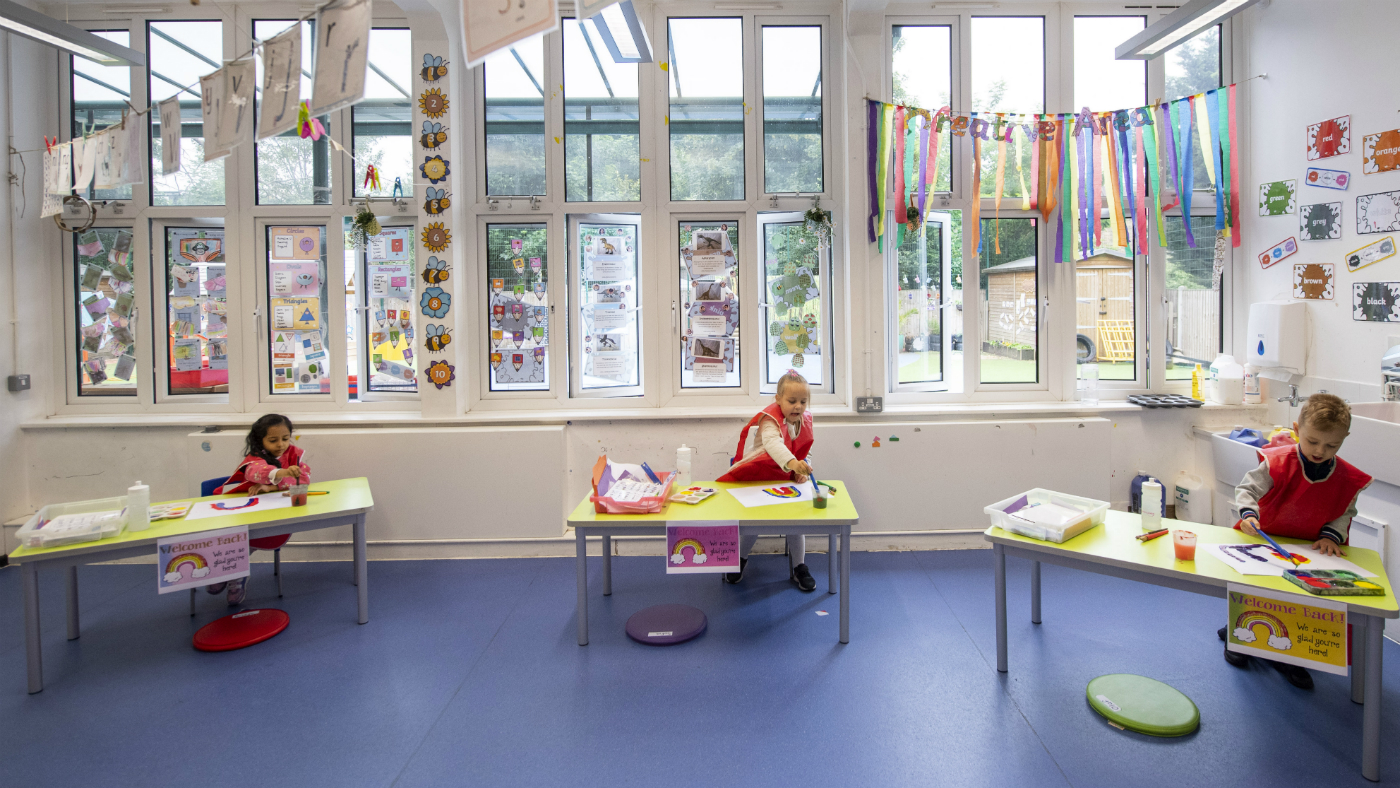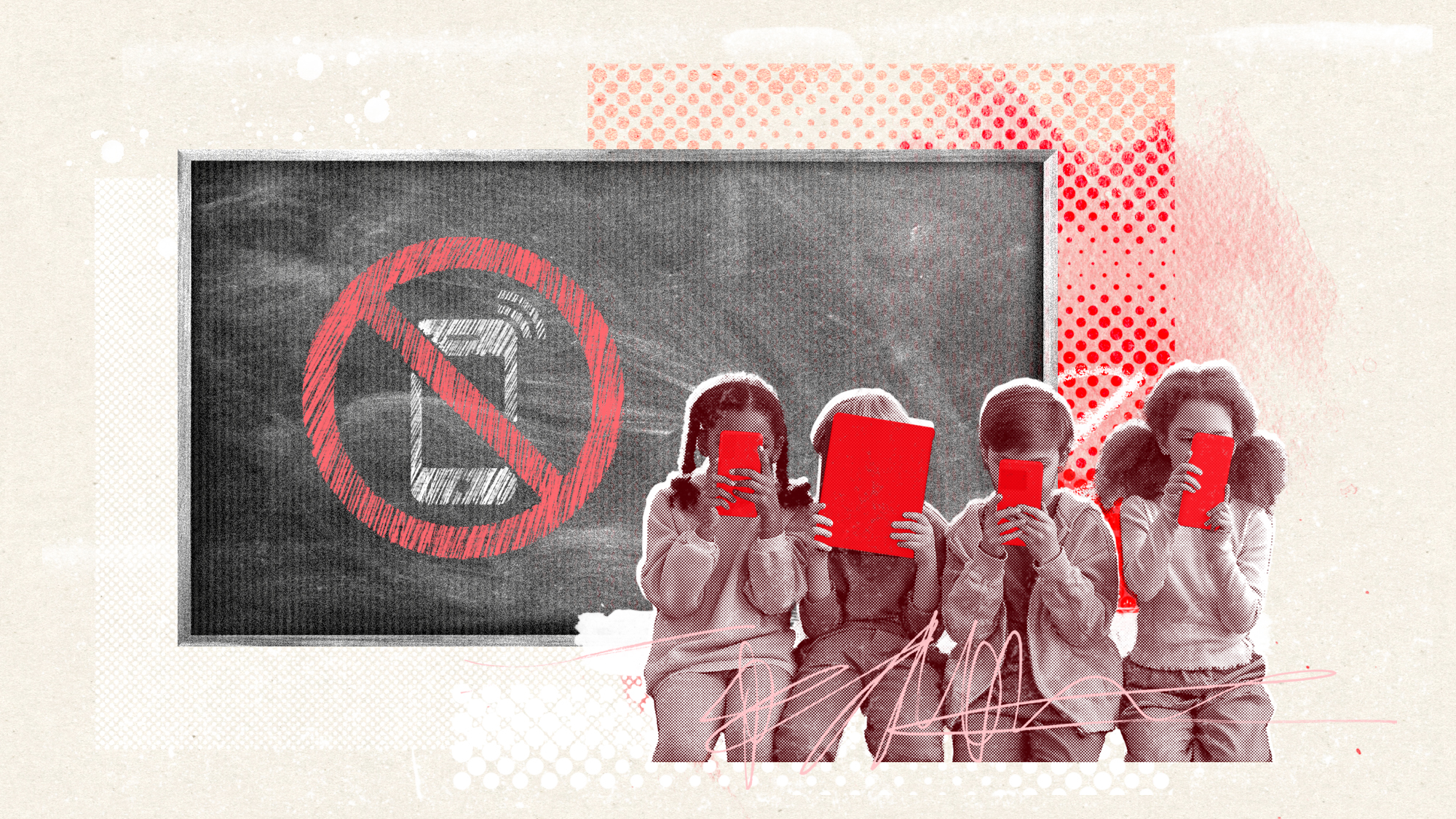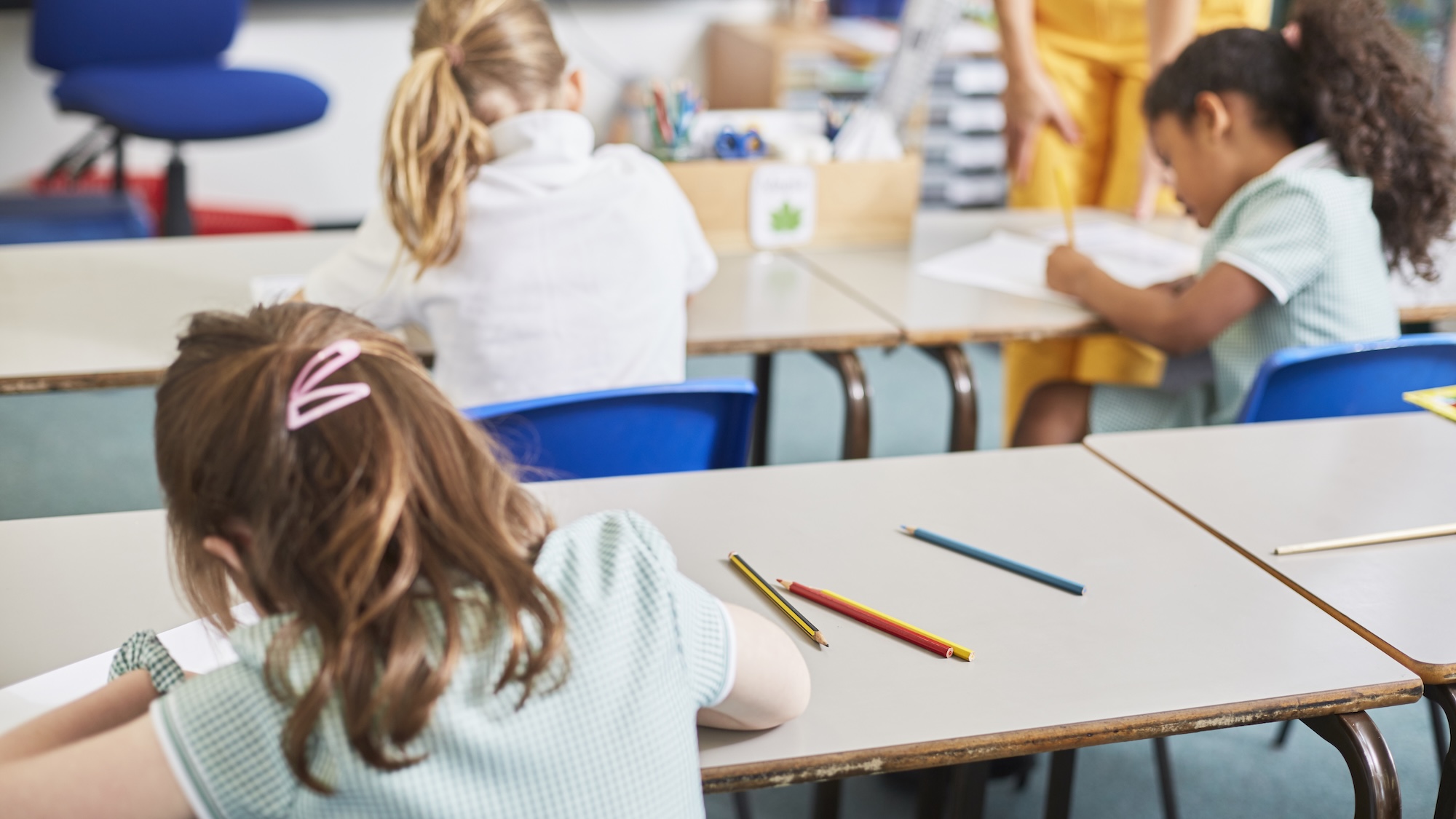Will reopened schools spread coronavirus?
Government to roll out #backtoschoolsafely campaign as pressure mounts on education secretary

A free daily email with the biggest news stories of the day – and the best features from TheWeek.com
You are now subscribed
Your newsletter sign-up was successful
Government ministers are launching a new plan to persuade parents that it will be safe for their children to return to the classroom when school restarts in September.
According to the BBC, the government will launch the so-called #backtoschoolsafely campaign in the next few weeks in order to highlight the measures being put in place to minimise the risk of coronavirus transmission in the classroom.
The campaign will involve newspaper, digital, radio and billboard advertisements and will “emphasise the importance of organised learning to children’s development”, the London Economic says.
The Week
Escape your echo chamber. Get the facts behind the news, plus analysis from multiple perspectives.

Sign up for The Week's Free Newsletters
From our morning news briefing to a weekly Good News Newsletter, get the best of The Week delivered directly to your inbox.
From our morning news briefing to a weekly Good News Newsletter, get the best of The Week delivered directly to your inbox.
“It will point to guidance, endorsed by Public Health England, to ensure schools are Covid-secure - including staggered break times, increased hygiene and hand-washing and keeping pupils in consistent groups,” the news site adds.
“At the same time, staff and pupils are being encouraged to walk or cycle to school whenever possible.”
Last week, Education Secretary Gavin Williamson said the decision to accelerate the reopening of schools across England in time for the new academic year in September had been guided by an unpublished study by Public Health England (PHE).
He said that the PHE study found the virus is unlikely to spread in the classroom, findings that have failed to convince some experts.
A free daily email with the biggest news stories of the day – and the best features from TheWeek.com
So what does the new data say?
The new PHE study is due to be published within the next few months and is reportedly based on data from 100 schools across England.
A total of about 20,000 pupils and teachers are understood to have been tested to monitor the spread of the disease up to the end of the summer term, after schools partially reopened in June following the nationwide coronavirus lockdown.
At the weekend, Professor Russell Viner, president of the Royal College of Paediatrics and Child Health and a member of the Scientific Advisory Group for Emergencies (Sage), said the new study would show that there was “very little evidence that the virus is transmitted” in schools.
“We know that children can and do transmit this virus, of course they do, but they’re very minor players in the transmission overall, particularly younger children,” Viner said. “It’s increasingly clear that older children - teenagers, probably - transmit as much as adults, but schools themselves play very little role.”
Repeating that message in the wake of the row over what the study says, Viner told The Guardian that we “should be reassured” by the findings so far from schools, rather than focusing on the “theoretical risks” highlighted in modelling studies.
According to the newspaper, “the report is likely to show that most children are infected with coronavirus at home, not at school” - but “the unanswered question is to what extent children then transmit the infection to teachers, their families and the wider community”.
What does this mean for UK schools?
In a statement on Tuesday, chief nurse Bennett said: “Parents can be reassured that to maximise safety in schools, an extremely stringent system of controls has been advised by PHE.”
All the same, the mixed messages about the new research are “likely to heighten concerns among teaching unions that a full return of pupils to school is not safe”, says Sky News.
Experts had already warned that Boris Johnson’s plan for a full reopening of schools next month would depend on the UK having a functional track-and-trace system.
A scientific modelling study published in The Lancet earlier this month concluded that “if schools and society reopened full time or in a part-time rota system on 1 September 2020, with sufficiently broad coverage of a test–trace–isolate programme, a second Covid-19 wave could be prevented in the UK”.
But the paper authors added that “we also predict that in the absence of sufficiently broad test–trace–isolate coverage, reopening of schools combined with accompanied reopening of society across all scenarios might induce a second Covid-19 wave”.
And while Professor Viner appears optimistic about low transmission rates in schools, he has also warned that if test-and-trace systems fail to curb a new surge of the virus, the government must close pubs, clubs, some shops or any businesses “not essential to the future of society”, as he put it, in order to allow schools, “which are essential to our future”, to reopen.
Anne Longfield, the children’s commissioner, has also said pubs must shut if necessary to keep schools open. Calling for “weekly” coronavirus testing in all schools, she told Times Radio: “It should become part and parcel of what a good system around school should look like.”
Can we learn anything from what has happened abroad?
On Monday, Viner told BBC Radio 4’s Today programme that the global consensus appears to be that schools are not significant vectors for coronavirus.
“There are five studies from around the world - from New South Wales, from Australia, Singapore, from Ireland, from Germany, and from France - and in each of those there appears to be very, very little transmission in schools,” he said.
These success stories have been the result of significant safeguarding measures and testing and tracing schemes in these countries, with adults and children tested regularly and contact tracing prioritised, according to The Telegraph.
However, Israel has bucked this trend and is serving as a cautionary tale that returning children to school even with these safeguards in place can still have negative consequences.
On 7 May, the country reopened its schools to some, but not all, age groups, and has enforced two-metre distancing, one-way systems, staggered breaks, smaller groups, enhanced hygiene measures, mandatory face masks and a ban on physical contact and sharing food or pens. And while most countries that have reopened schools have implemented testing only for symptomatic children, in Israel a positive case results in the whole school being tested.
Despite these efforts to curb the virus, the reopening of schools coincided with a dramatic second spike in Israel, with cases more than doubling in the 50-day period following the reopening.
According to a research paper put together by the Royal Society's Delve initiative, a group of scientists compiling data on Covid-19, the increase in cases has “largely been associated with children between the ages of ten and 19 years”.
Nevertheless, other countries also appear keen to push forward with reopening schools, and the Delve initiative suggests that Israel is confounding scientists as something of an outlier. The New York Times suggests that Israel’s spike may be related to the country’s widespread use of air-conditioning in schools, something that does not apply to other countries.
-
 Why is the Trump administration talking about ‘Western civilization’?
Why is the Trump administration talking about ‘Western civilization’?Talking Points Rubio says Europe, US bonded by religion and ancestry
-
 Quentin Deranque: a student’s death energizes the French far right
Quentin Deranque: a student’s death energizes the French far rightIN THE SPOTLIGHT Reactions to the violent killing of an ultraconservative activist offer a glimpse at the culture wars roiling France ahead of next year’s elections.
-
 Secured vs. unsecured loans: how do they differ and which is better?
Secured vs. unsecured loans: how do they differ and which is better?the explainer They are distinguished by the level of risk and the inclusion of collateral
-
 The pros and cons of banning cellphones in classrooms
The pros and cons of banning cellphones in classroomsPros and cons The devices could be major distractions
-
 School phone bans: Why they're spreading
School phone bans: Why they're spreadingFeature 17 states are imposing all-day phone bans in schools
-
 Schools: The return of a dreaded fitness test
Schools: The return of a dreaded fitness testFeature Donald Trump is bringing the Presidential Fitness Test back to classrooms nationwide
-
 Send reforms: government's battle over special educational needs
Send reforms: government's battle over special educational needsThe Explainer Current system in 'crisis' but parents fear overhaul will leave many young people behind
-
 Education: Can public schools be religious?
Education: Can public schools be religious?Feature A Supreme Court seems ready to rule in favor of religious charter schools in Oklahoma, which could reshape public education
-
 America's academic brain drain has begun
America's academic brain drain has begunIN THE SPOTLIGHT As the Trump administration targets universities and teachers, educators are eying greener academic pastures elsewhere — and other nations are starting to take notice
-
 Schools' Send crisis: how can it be fixed?
Schools' Send crisis: how can it be fixed?Today's Big Question Government urged to reform support for children with special educational needs and disabilities and save councils from bankruptcy
-
 Unschooling: the radical education trend raising eyebrows
Unschooling: the radical education trend raising eyebrowsUnder the radar Some parents are letting their children lead their education